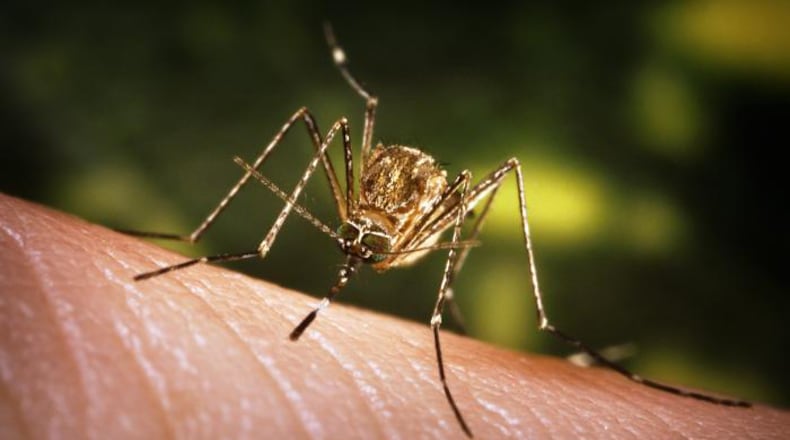West Nile Virus is the leading cause of mosquito-borne disease in the continental United States, said Public Health-Dayton & Montgomery County spokesman Dan Suffoleto, citing Centers for Disease Control & Prevention statistics. Cases of WNV occur during mosquito season, which starts in the summer and continues through fall.
Symptoms of West Nile include body aches, diarrhea, fatigue, fever, headaches, joint pain, rash and vomiting.
There are no vaccines available to prevent or medications to treat West Nile Virus in humans, according to the CDC. The good news is that most people who become infected with West Nile Virus don’t experience any symptoms. However, approximately 1 in 5 infected people may develop a fever and other symptoms.
In rare cases, around 1 out of every 150 infected people may develop a severe, potentially fatal illness.
Nate Smith, CCCHD communications coordinator, said last month the Clark County had two probable West Nile Virus cases in humans in 2021 and two in 2018.
Clark County gets positive tests in mosquitoes most years.
Some mosquitoes are harmful and can spread viruses like West Nile, dengue, Zika, and parasites like malaria, according to the CDC.
The Clark County Combined Health District also is inspecting the affected areas and working with residents to reduce breeding sources, plus misting the area with Duet, a mosquito killer, according to a release from the health department.
Public Health sets traps weekly throughout Montgomery County to identify mosquitoes carrying WNV, according to Suffoleto.
“Locations are chosen so there are a variety of areas where mosquitos are more likely to be present and where the public is more likely to encounter them,” Suffoleto told this news outlet Friday. “Many locations include area parks. Regardless of where traps are set, mosquitos that carry West Nile are seen widely throughout Ohio.”
Traps last week turned up mosquitoes that tested positive in Centerville, Trotwood and Washington Twp.
The health department is working with property owners to drain or treat stagnant water with Bacillus thuringiensis israelensis, a mosquito killer that is safe for humans and pets.
Spraying took place last month in the Southgate neighborhood in the south side of Springfield and the Ridgewood neighborhood on the west side to reduce the population of “nuisance” mosquitos, according to a press release from the Clark County Combined Health District.
The product is an environmentally friendly spray that poses no threat to humans or other animals, and will be applied with an “ultra-low volume applicator,” according to the health department.
The health department urged the public to take measures to avoid mosquito bites such as wearing long sleeves and long pants and spraying bug repellant last month. West Nile virus is a common virus in mosquitos and there have been very few cases of it in humans in Clark County.
